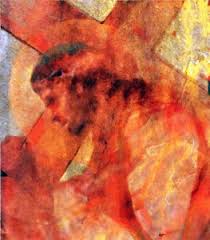As the Time Approached,
Jesus Resolutely Set Out for Jerusalem
Luke 9:51-56 and John 7:10
As the time approached, Jesus resolutely set out for Jerusalem DIG: Why was Messiah’s departure for Jerusalem delayed? Why do you think the Lord chose to avoid the usual method of travel to the Holy City? Why was the festival of Sukkot a turning point in the Good Shepherd’s ministry? What prophet from the TaNaKh foresaw this event? What was the most direct route? What happened? How did two of His apostles react? What detour did they take? What was the end result?
REFLECT: Are you willing to let Jesus work in your life when He is ready, and in the way He chooses? How do you react when you’re in the middle of a trial? How good are you at making spiritual adjustments? Are you “stuck” in your ways? Why should you change? How? When? How do you treat unbelievers who are rude and hostile?
After Messiah’s half-brothers had left for the festival, He went also, not publicly, but in secret (John 7:10). His departure for Jerusalem is delayed. He waited until His half-brothers were already gone (to see link click Gj – Even Jesus’ Brothers Did Not Believe in Him). Jesus is the Master of every situation. So, now He goes up to the Holy City when He is ready, and in the way He chooses. When John says Christ did not go up publicly and in secret, he means the Lord did not go up to Yerushalayim with the pilgrim caravan. We can see how large such a group might consist of from the incident when Jesus was twelve (see Ba – The Boy Jesus at the Temple). Nothing could be more public than to journey in such a company. Yeshua avoided such a conspicuous method of travel.919 But, that didn’t mean that no one saw Him as we will see in our next file.

The festival of Sukkot marked an important turning point in the life and ministry of Yeshua ha-Mashiach. He was fully conscious of what awaited Him in the City of David. Now Yeshua turned His face to the heavenly City to face the opposition of the religious leaders that would culminate in His death and resurrection. As the time approached for Him to be taken up to heaven, Jesus resolutely set out for Yerushalayim despite all the difficulty and danger (Luke 9:51). Jesus made several trips to Tziyon, but Luke telescoped them to make his point that the Lord had to get to the Holy City to present Himself as the Messiah.920 Therefore, He set His face like a flint for Jerusalem (see my commentary on Isaiah Ir –Because the Sovereign LORD Helps Me, I Will Set My Face Like a Flint). Christ realized that this will be His last festival of Booths before He is received up to heaven. The festival of Sukkot marked the last six months of His life.
Jesus took the direct route from Galilee to the City of David that would take Him through Samaria. And the Galilean Rabbi sent messengers on ahead, who went into a Samaritan village to get things ready for Him; but the people there did not welcome Him, because He was heading south for Zion (Luke 9:52-53). He had already gone through Samaria once before but He had been traveling north (see Ca – Jesus Talks With a Samaritan Woman). The Samaritans had no trouble with Jews going away from Jerusalem, but, they did not want Samaria to be a thoroughfare for Jews going south toward it because they did not consider Jerusalem a holy city. They considered Mount Gerizim in the northern kingdom of Isra’el to be the only holy city. According to Josephus in his Antiquity of the Jews, Samaritans were known to kill Jews passing through Samaria on their way to Yerushalayim.
James and John, the sons of thunder, were incensed and considered such rejection worthy of judgment when they asked: Lord, do you want us to call fire down from heaven to destroy them (Luke 9:54)? They had recently been with the Messiah on the mount of transfiguration (see Gb – Jesus took Peter, James and John up a High Mountain where He was Transfigured) and had seen Elijah, the prophet who had once called down fire from heaven on Mount Carmel. In addition, Yeshua had given them wonderful powers in the recent Galilean campaign. It did not require a great leap of imagination for them to believe that calling down fire now to wipe out this inhospitable village of detestable Samaritans who dared slight their Master was out of the question.
However misguided their request, their conclusion was true. Those who rejected the Savior of Sinners were to be judged. But, the time of judgment had not yet come. So, Christ turned and rebuked them. Then for the night’s lodging He and His talmidim went to another village, probably across the Jordan River in Perea (Luke 9:55-56). The usual route of the Galilean Jews in going to the City of David was on the eastern side of the Jordan River. This road would be less traveled because the festival of Sukkot had already begun, and it would also relieve any further conflict with Samaritans. A journey through Samaria would normally take about three days. But, because it took longer to get there, Jesus did not arrive in Jerusalem until the middle of the week. Not until halfway through the festival did Jesus go up to the Temple courts and begin to teach (John 7:14).



Leave A Comment